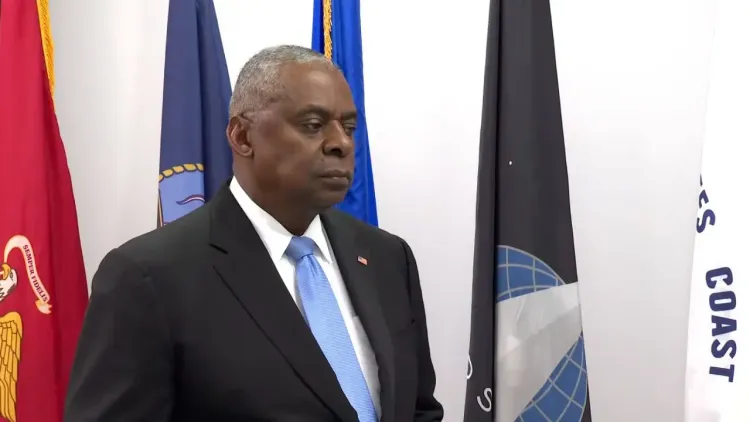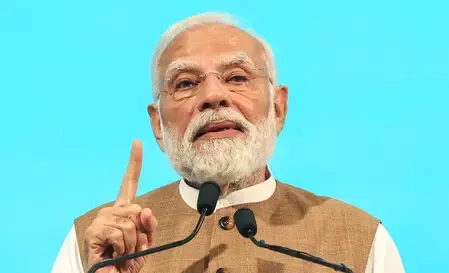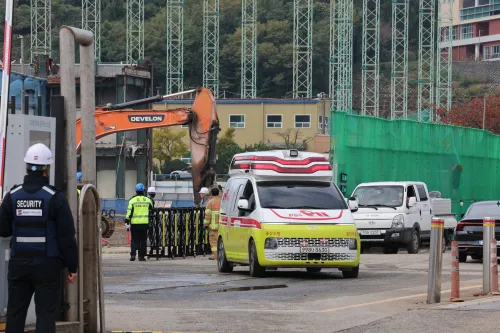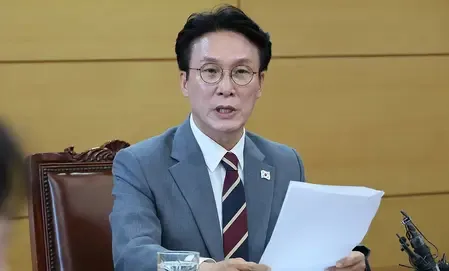Lloyd Austin Concludes His Tenure as US Defence Secretary with Visit to Japan

Tokyo, Dec 8 (NationPress) US Defence Secretary Lloyd Austin landed in Japan late Sunday, initiating his final voyage to the Indo-Pacific as the head of the Pentagon. This trip is part of efforts to solidify the Biden administration's policy legacy focused on enhancing regional alliances and partnerships.
Austin's arrival at Yokota Air Base near Tokyo marks the beginning of this Asia visit, which notably excludes an expected stop in South Korea, another crucial US ally, following President Yoon Suk Yeol's unsuccessful martial law attempt last week.
Throughout the trip, scheduled to continue through Wednesday, the Secretary will engage in discussions with Japanese Prime Minister Shigeru Ishiba and Defence Minister Gen Nakatani. He will also tour a US aircraft carrier, meet with American troops, and observe a military exercise involving Australian forces, as reported by a senior US defence official to the Yonhap news agency.
The official stated, "The Secretary's trip will underscore the significant achievements the Department of Defence has realized with Japan, a crucial treaty ally, over the past four years aimed at promoting peace, stability, and prosperity in the Indo-Pacific. We aim to build on these successes, and the upcoming three days will provide an opportunity to witness some of these advancements firsthand and in action."
Austin intends to meet with Ishiba and Nakatani separately on Tuesday to assess the progress both nations have made and to stress the alliance's importance, according to the official.
Additional activities include his visit to the USS George Washington nuclear-powered aircraft carrier stationed at the Yokosuka Naval Base and his attendance at a US-Japan military exercise, which will feature Australian forces participating for the first time.
This visit to Japan occurs as Washington considers Tokyo essential for its "new convergence" strategy, which aims to unite US allies and partners in adaptable groupings to advocate for a collective vision of a "free and open" Indo-Pacific.
The official elaborated, "The new convergence of allies and partners who share a vision for a free and open Indo-Pacific is reinforcing deterrence in the region, with Japan emerging as a pivotal element of that network."
The cancellation of Austin's planned visit to Seoul has raised concerns that the aftermath of the brief martial law declaration may affect security coordination between Seoul and Washington regarding North Korea's evolving nuclear and missile threats.
Following the martial law incident, Seoul and Washington also postponed a session of the Nuclear Consultative Group, the allies' key nuclear deterrence platform, along with a related exercise that was originally scheduled to occur in Washington last week.
US officials have voiced "grave concern" over the martial law declaration while affirming that America's commitment to its alliance with South Korea remains "ironclad."









